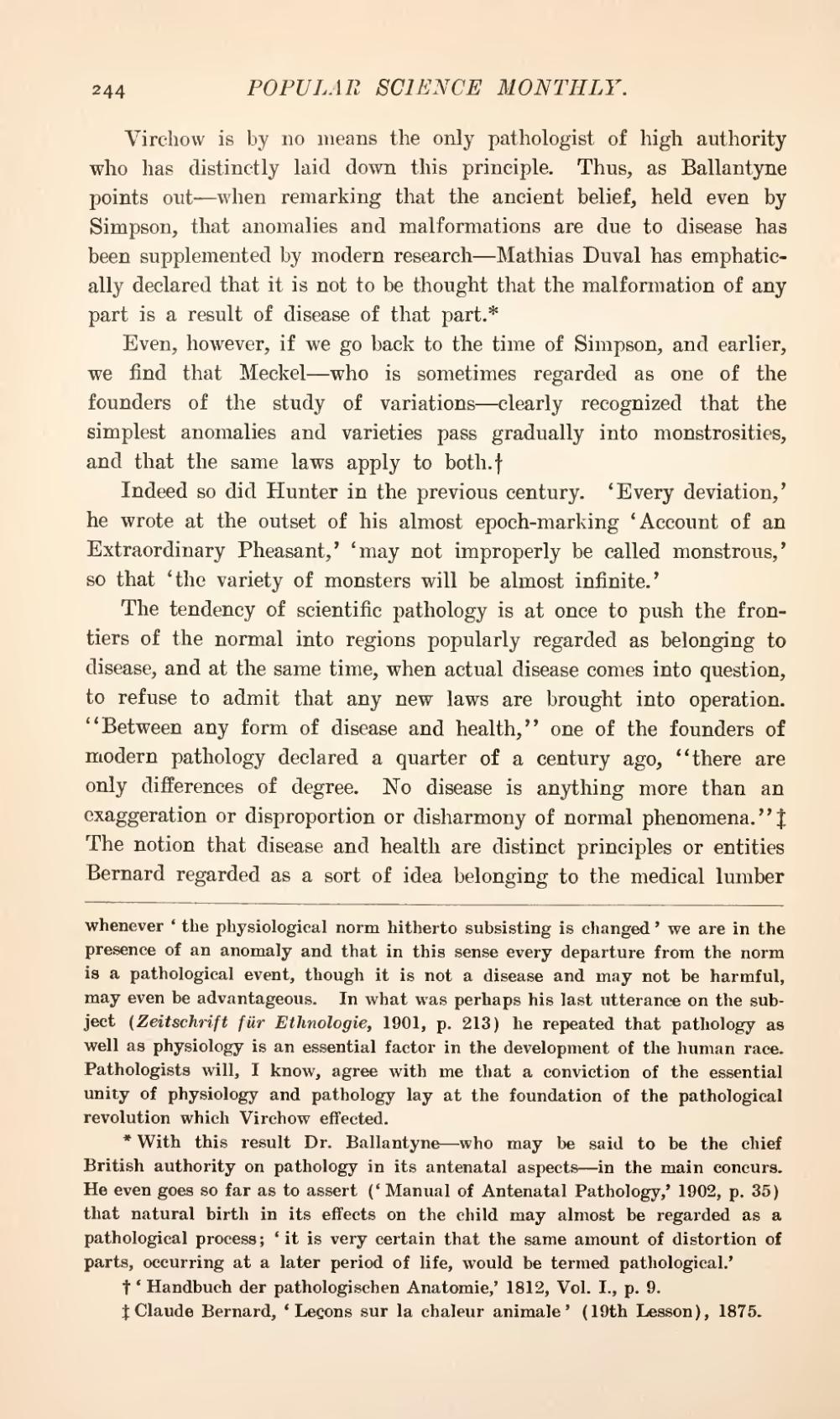Virchow is by no means the only pathologist of high authority who has distinctly laid down this principle. Thus, as Ballantyne points out—when remarking that the ancient belief, held even by Simpson, that anomalies and malformations are due to disease has been supplemented by modern research—Mathias Duval has emphatically declared that it is not to be thought that the malformation of any part is a result of disease of that part.[1]
Even, however, if we go back to the time of Simpson, and earlier, we find that Meckel—who is sometimes regarded as one of the founders of the study of variations—clearly recognized that the simplest anomalies and varieties pass gradually into monstrosities, and that the same laws apply to both.[2]
Indeed so did Hunter in the previous century. 'Every deviation' he wrote at the outset of his almost epoch-marking 'Account of an Extraordinary Pheasant,' 'may not improperly be called monstrous,' so that 'the variety of monsters will be almost infinite.'
The tendency of scientific pathology is at once to push the frontiers of the normal into regions popularly regarded as belonging to disease, and at the same time, when actual disease comes into question, to refuse to admit that any new laws are brought into operation. "Between any form of disease and health," one of the founders of modern pathology declared a quarter of a century ago, "there are only differences of degree. No disease is anything more than an exaggeration or disproportion or disharmony of normal phenomena."[3] The notion that disease and health are distinct principles or entities Bernard regarded as a sort of idea belonging to the medical lumber
- ↑ With this result Dr. Ballantyne—who may be said to be the chief British authority on pathology in its antenatal aspects—in the main concurs. He even goes so far as to assert ('Manual of Antenatal Pathology,' 1902, p. 35) that natural birth in its effects on the child may almost be regarded as a pathological process; 'it is very certain that the same amount of distortion of parts, occurring at a later period of life, would be termed pathological.'
- ↑ 'Handbuch der pathologischen Anatomie,' 1812, Vol. I., p. 9.
- ↑ Claude Bernard, 'Leçons sur la chaleur animale' (19th Lesson), 1875.
whenever 'the physiological norm hitherto subsisting is changed' we are in the presence of an anomaly and that in this sense every departure from the norm is a pathological event, though it is not a disease and may not be harmful, may even be advantageous. In what was perhaps his last utterance on the subject (Zeitschrift für Ethnologie, 1901, p. 213) he repeated that pathology as well as physiology is an essential factor in the development of the human race. Pathologists will, I know, agree with me that a conviction of the essential unity of physiology and pathology lay at the foundation of the pathological revolution which Virchow effected.

